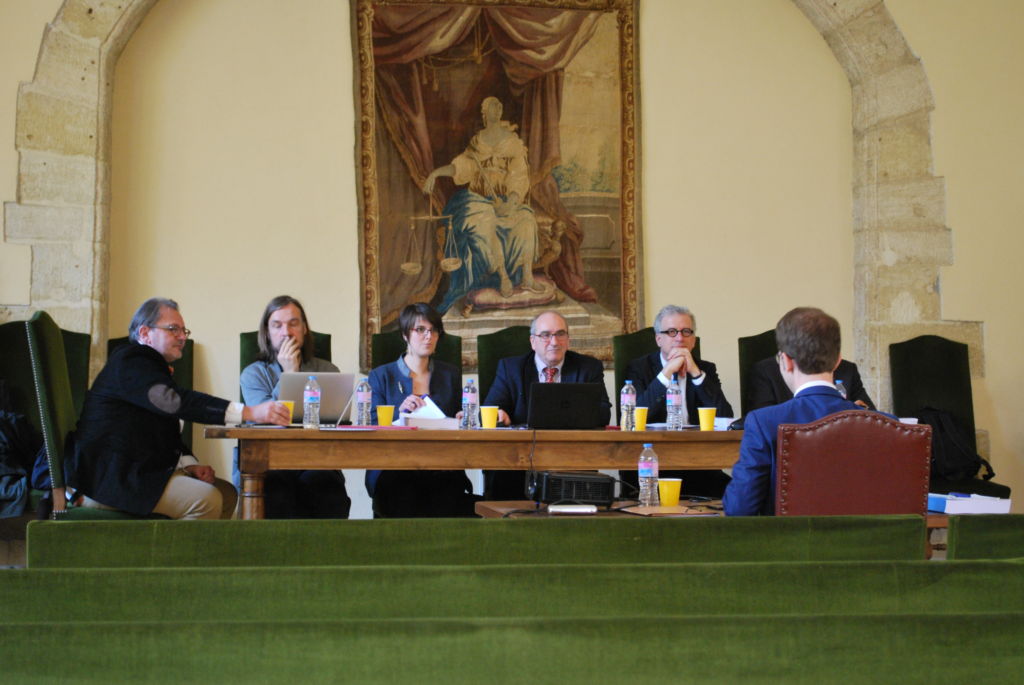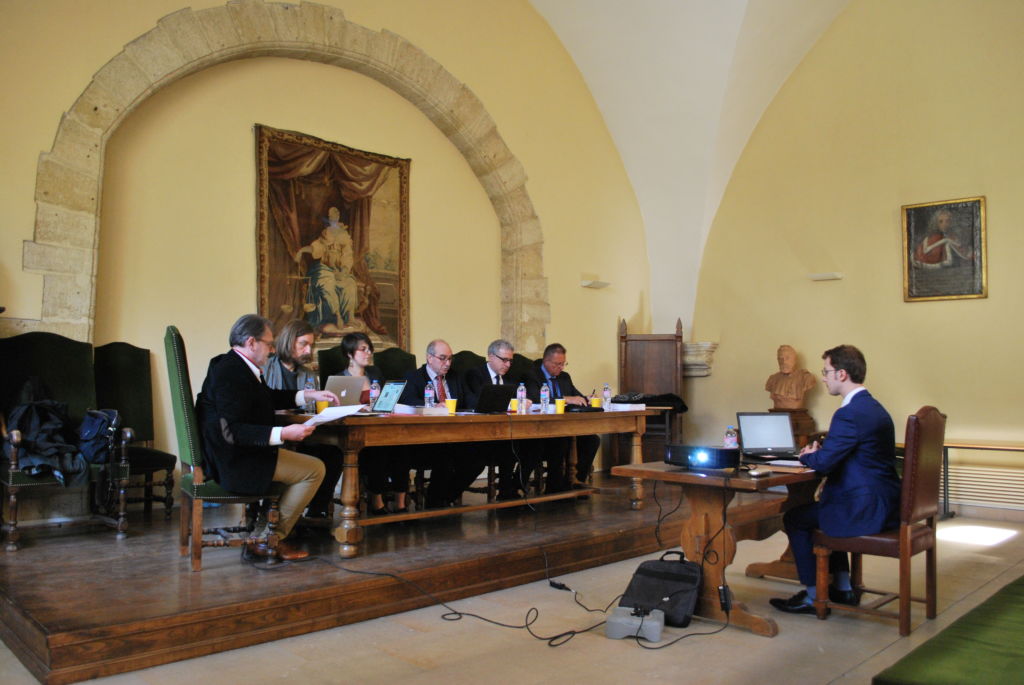Laurent BORZILLO's thesis defense
Mr. Laurent BORZILLO defended his thesis "Les forces expéditionnaires bi/multinationales en Europe: analyse comparée des politiques d'alliance de la France et de l'Allemagne (1991-2016)" on Friday, February 21, 2020 at 2:30 pm at the Faculté de Droit et de Science politique, Université de Montpellier, 39 rue de l'Université 34060 Montpellier Cedex 2, Salle: des actes. Directed by Mr. Jean JOANA and Mr. Frédéric MERAND
Co-tutelle with the University of Montreal (CANADA)
Composition of the proposed jury
- Mr Thomas LINDEMANN, Université Versailles Saint-Quentin. Rapporteur.
- Mr Stephan MARTENS, University of Cergy-Pontois. Rapporteur.
- Ms Laurie BEAUDONNET Université de Montréal. Examiner.
- Mr. Hubert PERES University of Montpellier. Examiner.
- M. Jean JOANA University of Montpellier. Thesis supervisor.
- Mr. Frédéric MÉRAND Université de Montréal. Thesis co-supervisor.
Keywords: comparative foreign policy analysis,European army,Franco-German Brigade (BFA),France and Germany,European Union Battlegroups (EUBG),public alliance policies
Summary:
Why do states create bi/multi-national expeditionary forces? Why aren't these forces actually used? The aim of this thesis is to provide an explanation for this paradox, perfectly illustrated by the Franco-German Brigade and the European Union Battlegroups
. Although these two units are not the only ones in Europe that can be described as expeditionary forces, we decided to choose them as case studies, in order to analyze the decision-making processes in both France and Germany through the measures relating to them. We have therefore focused on these units and the alliance policies behind them. In concrete terms, our research is in line with
works on alliances, but also within the field of comparative foreign policy analysis. The theoretical explanation developed to explain the decisions studied is based on Kal Holsti's role theory. In our view, decisions are taken only by a limited group of actors, and are the result of the roles to which they adhere for their country. These roles are moderated by institutional arrangements, conflicts and power relations. Moreover, in the case of decisions with an institutional impact, there is a path dependency on previous measures. Decisions in favor of the Franco-German brigade and the groupings are ultimately the result of the dominance of the roles of promoter of European military capability-building and loyal ally, among the actors behind these decisions. On the contrary, other roles in France and Germany tend to hinder the use of these units, in particular that of great power (for France) and civilian power (for Germany). Several roles coexist within each decision-making apparatus, and each sees its weight in terms of influence fluctuate. This is due to the fact that, depending on the decisions
studied, the actors involved vary, as do the struggles and power relationships between them. Our thesis is divided into seven chapters. The first three review the literature on the forces and alliances studied, our methodology, and international relations in Europe over the last thirty years. The following sections deal with the evolution of the Franco-German brigade into an expeditionary force, the creation of the battle groups, the choice of partners within them, and the non-employment of these military troops. These various themes make up the four empirical chapters of our research. In conclusion, we can say that the chances of deployment of the units studied in the coming
years remain rather low. The theoretical explanation developed for this work, based on role theory, also offers a tool for understanding the workings of the French and German political-military apparatuses. Validated for this analysis, it now remains to
be tested on other case studies and states.

